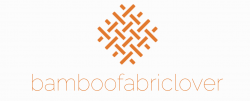The question of whether bamboo sheets are vegan has received significant attention due to concerns about the ethical treatment of animals and the impact of certain industries on the environment. Bamboo-based materials, such as bamboo lyocell, have gained popularity in recent years for their sustainable and eco-friendly nature. Unlike traditional silk that’s derived from silkworms that are killed in the process, bamboo lyocell fabrics are created from organic bamboo pulp without the use of harmful chemicals like pesticides and herbicides. This innovative manufacturing technique allows for the production of luxuriously smooth bedding, often referred to as the "vegan silk." These bamboo sheets not only offer a guilt-free alternative to silk, but they also showcase the natural properties of bamboo, including it’s moisture-wicking, hypoallergenic, and temperature-regulating qualities.
Is Bamboo Silk Vegan?
Bamboo silk is indeed considered vegan as it’s made from bamboo fibers instead of animal-derived materials. The production process of bamboo silk doesn’t involve any harm or exploitation of animals, making it a cruelty-free alternative to traditional silk. This makes it an excellent choice for individuals who follow a vegan or plant-based lifestyle.
Bamboo is a fast-growing plant that doesn’t require harmful pesticides or excessive amounts of water to grow. This makes bamboo silk a more sustainable option compared to traditional silk, which is derived from silkworms that are often subjected to inhumane treatment.
The smooth texture of bamboo silk is gentle on the skin and hair, reducing friction and the formation of tangles. Unlike traditional silk, bamboo silk doesn’t trap heat and moisture, making it an excellent choice for individuals with sensitive skin or those prone to sweating.
The Environmental Benefits of Choosing Bamboo Silk
Bamboo silk is an eco-friendly alternative to conventional silk fabrics. It’s made from natural bamboo fibers, which are renewable and biodegradable. Choosing bamboo silk contributes to the preservation of forests and reduces the demand for harmful synthetic materials. Additionally, the production of bamboo silk requires significantly less water and energy compared to traditional silk production. The use of bamboo as a raw material also has a positive impact on carbon emissions, as bamboo plants absorb more carbon dioxide and release more oxygen compared to other plants. By opting for bamboo silk, consumers can enjoy the luxurious feel of silk while making a sustainable choice for the environment.
Not only is bamboo silk environmentally friendly, but it also offers a silky, luxurious texture that’s highly sought after in rugs and textiles. It’s sustainable qualities make it a popular choice for those who prioritize eco-friendly materials in their homes. In this article, we will delve deeper into the properties of bamboo silk and why it’s become a favorite among homeowners and designers alike.
What Is Bamboo Silk?
This fast growth rate makes bamboo an excellent candidate for sustainable textile production. To make bamboo silk, the cellulose fibers from the bamboo stalks are extracted and processed into a viscose solution. This solution is then extruded through spinnerets to form fibers, which are then spun into yarn. The resulting yarn is soft, lustrous, and similar in texture to silk.
Bamboo silk rugs are known for their luxurious appearance and feel. They’ve a beautiful sheen that adds a touch of elegance to any room. These rugs are also incredibly soft and smooth, making them a pleasure to walk on barefoot. This makes them a great choice for high-traffic areas in the home.
Regular vacuuming and occasional spot cleaning are usually sufficient to keep them looking their best. However, it’s important to avoid using harsh chemicals or excessive moisture, as this can damage the fibers. Additionally, bamboo silk rugs should be kept away from direct sunlight to prevent fading and discoloration.
Source: Pros and Cons of Bamboo Silk Rugs
Bamboo silk, renowned for it’s eco-friendly qualities, is made from 100% organically grown bamboo. The raw material is carefully sourced from sustainably managed bamboo forests with international certification standards, ensuring the natural origin of the product. To further maintain it’s environmentally conscious production, harmful metals and chemicals are strictly regulated during the manufacturing process through a closed-loop system.
Is Bamboo Silk Natural?
Bamboo silk is indeed a natural material. This means that the bamboo plants are cultivated without the use of synthetic fertilizers or pesticides, following strict international standards such as the OCIA certification.
To ensure the sustainability of bamboo forests, the bamboo used for manufacturing bamboo silk comes from sustainably managed sources. This is validated through the Forest Stewardship Council (FSC) certification. This certification guarantees that the bamboo forests are responsibly managed, taking into account the social, economic, and environmental aspects of their operations.
To minimize the environmental impact, the use of harmful metals and chemicals is strictly controlled. This includes avoiding the use of toxic dyes or bleach that could harm the ecosystem and human health. Additionally, the manufacturing process employs a closed-loop system, which means that waste and chemicals are minimized by recycling and reusing them within the production cycle. This helps to reduce pollution and promote a more sustainable approach to textile manufacturing.
Conclusion
This environmentally friendly and cruelty-free alternative to traditional silk bedding offers vegan consumers a luxurious and guilt-free option. By utilizing the sustainable and renewable resource of bamboo, the production of these sheets doesn’t harm any animals or contribute to the use of harmful chemicals. The silky smooth texture of the bamboo lyocell fabric rivals that of traditional silk, proving that vegan options can be just as indulgent and high-quality.
